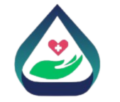Drug Addiction Treatment
Drug Addiction Treatment: Effective Solutions for a Lasting Recovery
Understanding Drug Addiction
Drug addiction, or substance use disorder (SUD), is a chronic, relapsing condition characterized by the compulsive use of one or more substances, despite the negative consequences it brings. It affects millions of people worldwide, cutting across all ages, genders, and socio-economic backgrounds. Addiction to drugs, whether they are prescription medications, alcohol, or illegal substances, can lead to serious health issues, strained relationships, financial instability, and a reduced quality of life.
Compassion and Comprehensive
Understanding that addiction is a medical condition—not a moral failing—is essential to fostering compassion, reducing stigma, and encouraging those affected to seek help. Drug addiction impacts both the mind and body, creating a powerful psychological and physical dependency that can be challenging to break. However, with comprehensive treatment and support, recovery is possible. This page offers an in-depth overview of drug addiction treatment options to help guide individuals toward a healthier, substance-free life.
Types of Drug Addiction Treatment: Finding the Right Approach
Effective drug addiction treatment involves a multi-faceted approach tailored to each individual’s unique needs. Here are the primary treatment options:
Detoxification (Detox)
Detoxification is often the first step in treating drug addiction. It involves clearing the substance from the body and managing withdrawal symptoms, which can range from mild to severe, depending on the drug used and the duration of use. Detox should be done under medical supervision to ensure safety, as withdrawal from certain substances (like alcohol, benzodiazepines, or opioids) can be life-threatening. Medical professionals may provide medications to ease withdrawal symptoms and stabilize the patient.
Behavioral Therapies
Behavioral therapies are the cornerstone of drug addiction treatment, aiming to change patterns of thinking and behavior related to substance use. CBT helps individuals identify and modify negative thought patterns and behaviors associated with drug use. It teaches coping strategies to manage stress, cravings, and triggers effectively. DBT combines CBT with mindfulness techniques, helping individuals regulate their emotions, manage stress, and build healthier relationships.
Medication-Assisted
For some types of drug addiction, particularly opioids, alcohol, and tobacco, medications can be an essential component of treatment. Medications like methadone, buprenorphine, and naltrexone can help reduce cravings and withdrawal symptoms, making it easier for individuals to focus on behavioral therapies and recovery. MAT is most effective when combined with counseling and support services, offering a comprehensive approach to treatment.
Support Groups and Peer Support Programs
Engaging with support groups, such as AA, NA, or SMART Recovery, can provide a strong sense of community, accountability, and encouragement. These groups offer a non-judgmental space where individuals can share their experiences, learn from others, and receive ongoing support throughout their recovery journey.
Residential Treatment Programs
Residential or inpatient treatment programs offer a highly structured environment away from the triggers and stressors of everyday life. These programs provide 24/7 medical and emotional support, intensive therapy sessions, and a focus on building healthy habits and coping skills. Residential treatment is particularly effective for those with severe addiction, co-occurring mental health disorders, or limited social support.
Outpatient Treatment Programs
Outpatient programs offer flexibility for individuals who cannot commit to a residential program due to work, school, or family responsibilities. These programs include regular therapy sessions, group counseling, and education on addiction and relapse prevention. Intensive outpatient programs (IOPs) provide a higher level of care with more frequent sessions and support.
Recognizing Drug Addiction
Recognizing the signs of drug addiction is crucial for early intervention and effective treatment. Symptoms of drug addiction can vary depending on the substance being used, but common signs include:
Behavioral Changes
Unexplained absences, neglect of responsibilities, secrecy, changes in social circles, and engaging in risky or illegal activities.
Psychological Symptoms
Increased anxiety, paranoia, mood swings, depression, irritability, hallucinations, or difficulty concentrating.
Physical Symptoms
Bloodshot eyes, changes in appetite or sleep patterns, sudden weight loss or gain, tremors, slurred speech, or a decline in personal hygiene.
Compulsive Use
Cravings for the substance, using larger amounts over time, unsuccessful attempts to cut down or stop, and continuing use despite knowing the harm it causes.
